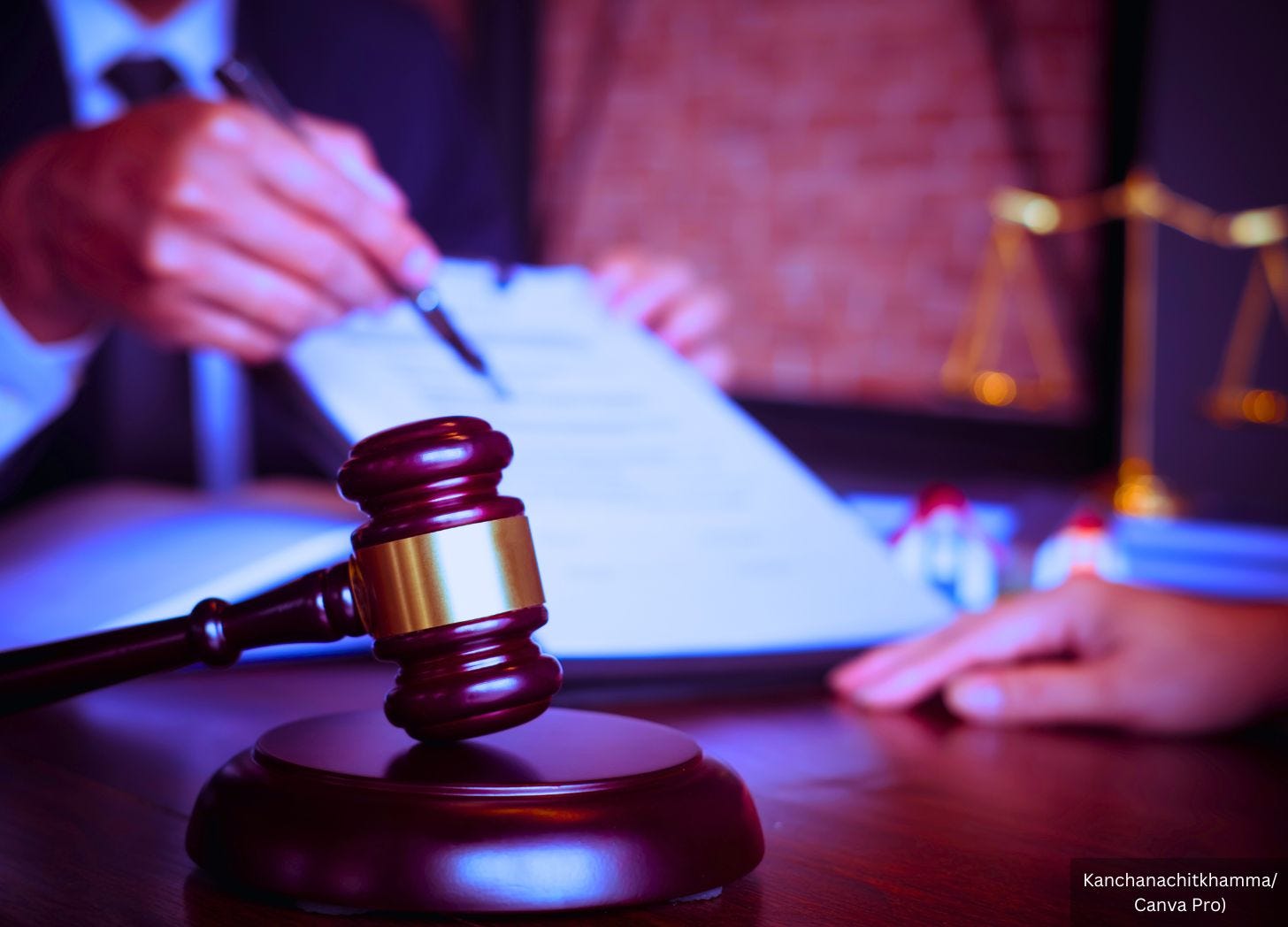9th Circuit Court Accepts Plaintiffs' Claim COVID-19 Jab Is 'Medical Treatment,' Not Traditional 'Vaccine'
"At this stage, we must accept Plaintiffs' allegations that the vaccine does not prevent the spread of COVID-19 as true," court opinion reads.
On Friday, the United States Court of Appeals for the Ninth Circuit issued a significant decision regarding the Los Angeles Unified School District’s (LAUSD) COVID-19 vaccination policy.
Follow Jon Fleetwood: Instagram @realjonfleetwood / Twitter @JonMFleetwood / Facebook @realjonfleetwood
The 2-1 ruling, made by a pair of federal judges appointed by President Donald Trump, has far-reaching implications for how COVID jabs are defined and enforced under legal mandates.
In the case brought by the Health Freedom Defense Fund, Inc. and several individual plaintiffs, the core argument centered on whether the COVID shot is a traditional “vaccine” or a therapeutic “medical treatment.”
The plaintiffs alleged that the COVID injection does not prevent the spread of the virus but instead mitigates symptoms for those who receive it.
Incidentally, this claim was supported by a Wednesday publication in the peer-reviewed medical journal BMC Medicine.
The study confirmed mRNA COVID jabs have “no significant effect” against infection or transmission.
“Health authorities carrying out vaccination campaigns should bear in mind that the current generation of COVID-19 vaccines may not represent an effective tool in protecting individuals from either transmitting or acquiring SARS-CoV-2 infection,” the study authors wrote.
“Future vaccination campaigns should emphasise the important role of COVID-19 vaccines in reducing severe disease and death among vulnerable population groups, rather than as a means to protect individuals from either transmitting or acquiring infection.”
Follow Jon Fleetwood: Instagram @realjonfleetwood / Twitter @JonMFleetwood / Facebook @realjonfleetwood
The distinction between a vaccine and a therapeutic medical treatment is crucial because it impacts the legal framework under which such drugs can be mandated.
The Ninth Circuit’s opinion emphasized the plaintiffs’ argument, stating, “Plaintiffs allege that the vaccine does not effectively prevent spread but only mitigates symptoms for the recipient and therefore is akin to a medical treatment, not a ‘traditional’ vaccine.”
The court had to accept this allegation as true at this stage of litigation, meaning that the case could not be dismissed outright.
The plaintiffs’ complaint was supported by statements and data from the U.S. Centers for Disease Control and Prevention (CDC).
Notably, the plaintiffs pointed out that “the CDC changed the definition of ‘vaccine’ in September 2021, striking the word ‘immunity.’”
This change, they argued, indicated that the COVID shot does not provide immunity in the traditional sense but instead functions as a therapeutic intervention.
The court’s decision to vacate the district court’s dismissal and remand the case was based on a critical misapplication of the Supreme Court’s 1905 decision in Jacobson v. Massachusetts.
The Ninth Circuit noted that “Jacobson held that mandatory vaccinations were rationally related to preventing the spread of smallpox. Here, however, plaintiffs allege that the vaccine does not effectively prevent spread but only mitigates symptoms for the recipient.”
Therefore, the court concluded, “Jacobson does not apply.”
Judge R. Nelson’s opinion made it clear that at this stage, the plaintiffs’ allegations must be taken as true.
He wrote, “Taking plaintiffs’ allegations as true at this stage of litigation, plaintiffs plausibly alleged that the COVID-19 vaccine does not effectively ‘prevent the spread’ of COVID-19. Thus, Jacobson does not apply.”
The court’s decision highlights the implications of defining the COVID shot as a medical treatment rather than a vaccine.
The opinion pointed out that “the district court misapplied the Supreme Court’s decision in Jacobson v. Massachusetts” by failing to distinguish between a vaccine designed to prevent disease transmission and a treatment intended to mitigate symptoms.
The court emphasized, “Plaintiffs’ complaint supports these assertions with data and statements from the Centers for Disease Control and Prevention (CDC).”
Judge Collins, concurring with the opinion, added an important perspective on the fundamental right to refuse medical treatment.
“The right described there satisfies the history-based standards that the Court applies for recognizing ‘fundamental rights that are not mentioned anywhere in the Constitution,’” he wrote. “The Supreme Court’s caselaw thus clarifies that compulsory treatment for the health benefit of the person treated—as opposed to compulsory treatment for the health benefit of others—implicates the fundamental right to refuse medical treatment.”
In summary, the Ninth Circuit’s decision underscores the importance of how the terms “vaccine” and “medical treatment” are defined and applied in legal contexts.
By accepting the plaintiffs’ allegations as true, the court has opened the door for further examination of whether the COVID shot can be mandated under the same legal principles that apply to traditional vaccines.
The outcome of this case could significantly impact future public health policies and the enforcement of vaccine mandates.
You can read the full decision below:
Follow Jon Fleetwood: Instagram @realjonfleetwood / Twitter @JonMFleetwood / Facebook @realjonfleetwood
Pfizer COVID Jab Has 'No Significant Effect' Against Infection or Transmission: Journal 'BMC Medicine'
A Wednesday publication in the peer-reviewed medical journal BMC Medicine confirms mRNA COVID-19 injections have “no significant effect” against infection or transmission.





So, this begs the question: How can a person be "vaccine hesitant" in reference to a product that is NOT a vaccine?...enjoying the clown world?
true journalism. great analysis of the case and related / implicated evidence + prior rulings.
TY!!